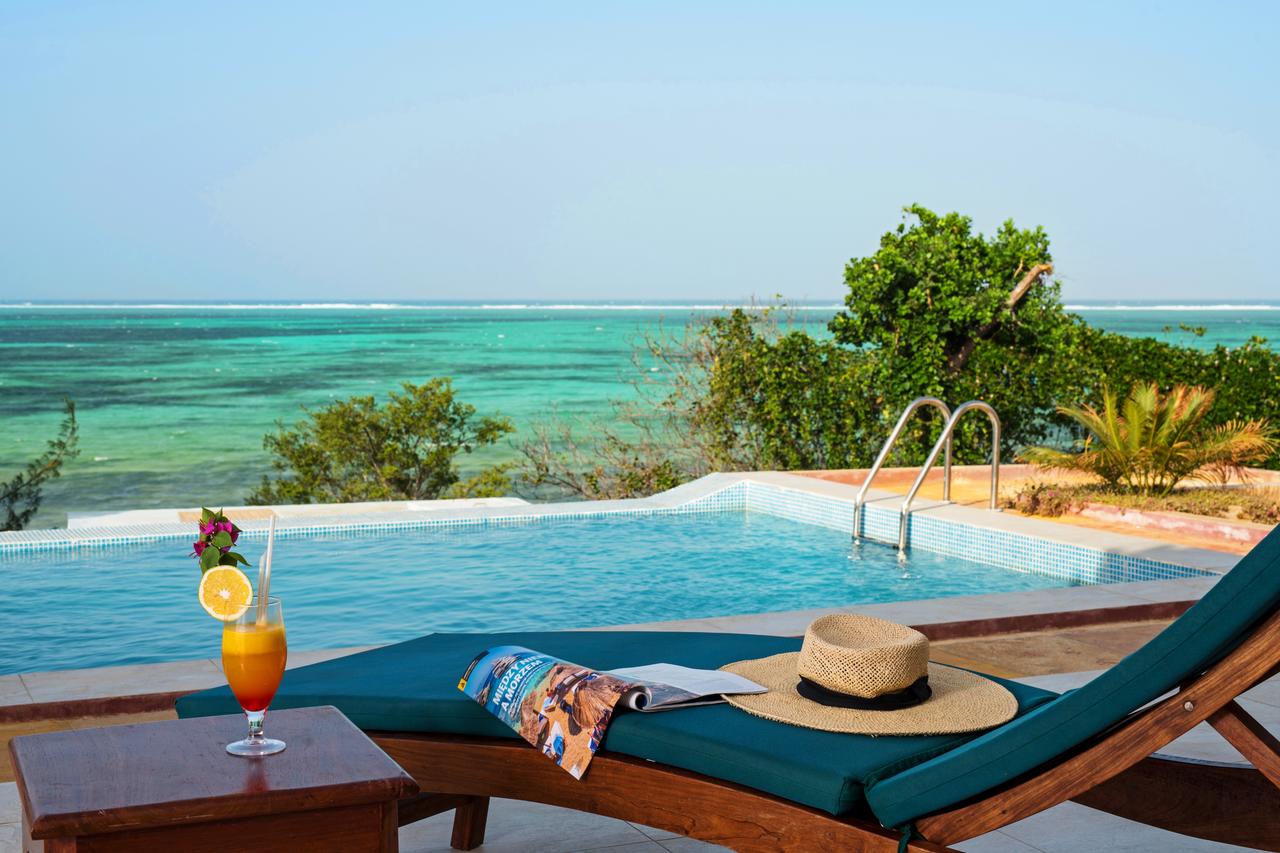Some seasoned travelers often despise luxury travel as they see it as unauthentic.
You do not get the whole authentic experience if you book such a holiday package. But I find myself torn between the quest for authenticity while sacrificing luxury. This has left me wondering if it is possible to balance things out a little bit of both.
Table of Contents
Is luxury Travel on The Move?
There is no arguing that traveling is a luxury by definition. A significant proportion of the world is unable to travel. Either because the political or economic circumstances prohibit it, or both.
When you factor in medical difficulties, more than 70% of the world’s population will never leave their local region, let alone their country. The majority of people cannot afford to travel. Despite this, millions of people in the Developed world are continuously looking for new places to visit.

Romantic couple looking at beautiful sunset in luxury infinity pool
Travel agencies and hotel firms have been developing goods to appeal to the requirements of these more or less affluent passengers since the early 1990s. They couldn’t afford the true luxury, but they could afford a lovely resort in the Maldives. East Asia has recently emerged as a new Mecca for cheap vacations to stunning beaches and magnificent hotels.
Although it is quite inexpensive, you feel like a celebrity on their private island. A product perfectly matches the customer’s expectations because let’s face it. No one truly understands what luxury is. So, what does luxury travel entail for me? I’ll repeat it: travel is a luxury.
Best of Both Worlds?
I enjoy the finer things in life, such as first-class flights, exquisite dining, and luxury hotels. Who doesn’t enjoy pampering while they are on their African holiday of a lifetime? But I also want to get the most out of my travels and witness “genuine life” in the countries I visit. I’ve read articles and blog posts claiming that high-end, luxury travel is the polar opposite of actual travel time and time again. That you haven’t completely embraced the location, you’re visiting unless you’ve been in a hostel or, better still, on a dirt floor in a distant village hut. Is that correct? Is it necessary for me to forego luxury in exchange for authenticity?
I beg to differ; I do not have to sleep in an uncomfortable tent, in my honest opinion. The thought of forgoing a hot shower in the search for authenticity doesn’t sit well with me. After spending thousands of dollars, I have certain expectations, and I feel this train of thought is widespread. A balance of having access to creature comforts and still seeing a pride of lions on the hunt is all I am asking for. This is no reason why travel cannot be authentic yet comfortable with the option to splurge a bit.
What Is One Luxury Travel
My interpretation is LUXURY TRAVEL MEANS HAVING THAT ONE-OF-A-KIND OPPORTUNITY TO SEE THE WORLD’S BEAUTY UP CLOSE & PERSONAL TAILORED FOR YOU.
The following points can best describe this:
That Personal touch
This could include amenities such as an infinity pool—that complimentary bottle of chilled champagne in your room. But, above all, the location trumps everything. A good hotel that isn’t in a great location is worthless. Another important aspect is how the staff interact with you.
A trip to Kenya will quickly demonstrate that service quality is considerably more critical. When the waiter greets you by name and understands your dietary restrictions on the first day. When the concierge never fails to offer helpful advice customized to your whims and desires. This is precisely why, despite the lack of recognition as a Luxury destination, I consider Kenya one of the best Luxury Safaris in the world.
Sustainability
Last but not least, you must consider the issue of sustainability. Whenever given the option, I prefer hotels that have a strong emphasis on sustainability. Please understand that sustainability does not imply a sign in the bathroom requesting that you conserve water and not throw your towels on the ground.
That isn’t sustainability but more of an establishment using it as a marketing tool. Most hotel companies bring management from abroad for that international touch.
Some even bring in western interior designers and, in some cases, even food. Few businesses hire locals for anything other than cleaning and laundry. The elegant beds you’re resting in are likely to be from Europe. They expect the chef to have studied to cook in France, Germany, or Spain.
Embrace Local
Rather than following these norms, I want to feel the difference in the location I am visiting. If I wish to French ambiance & cousin, I would naturally visit France. When I am on the African continent, I want to feel immersed in that place. A Kenyan manager with a solid Swahili accent would set the mood in ways I cannot even describe. This in itself is what would evoke a stronger feeling of authenticity.

Moja Tuu The Luxury Villa and Retreat Resort. [Photo by Booking.com]
The Luxury camps in the Masai Mara are an excellent example of this. You live in these glamorous camps with every creature’s comfort known to men. You get a mixture of local and international dishes that suit every palate. Friendly, well-trained locals provide these services with a passion for their jobs.
Most importantly, location! Location! Location. If you are in one of these camps at this very moment, you will have a vantage point of the great Wildebeest migration. What could be better than hearing, smelling, and seeing such an epic event?
I hate to say it, but perhaps the travel industry needs more sustainable luxury and less budget mass tourism.








